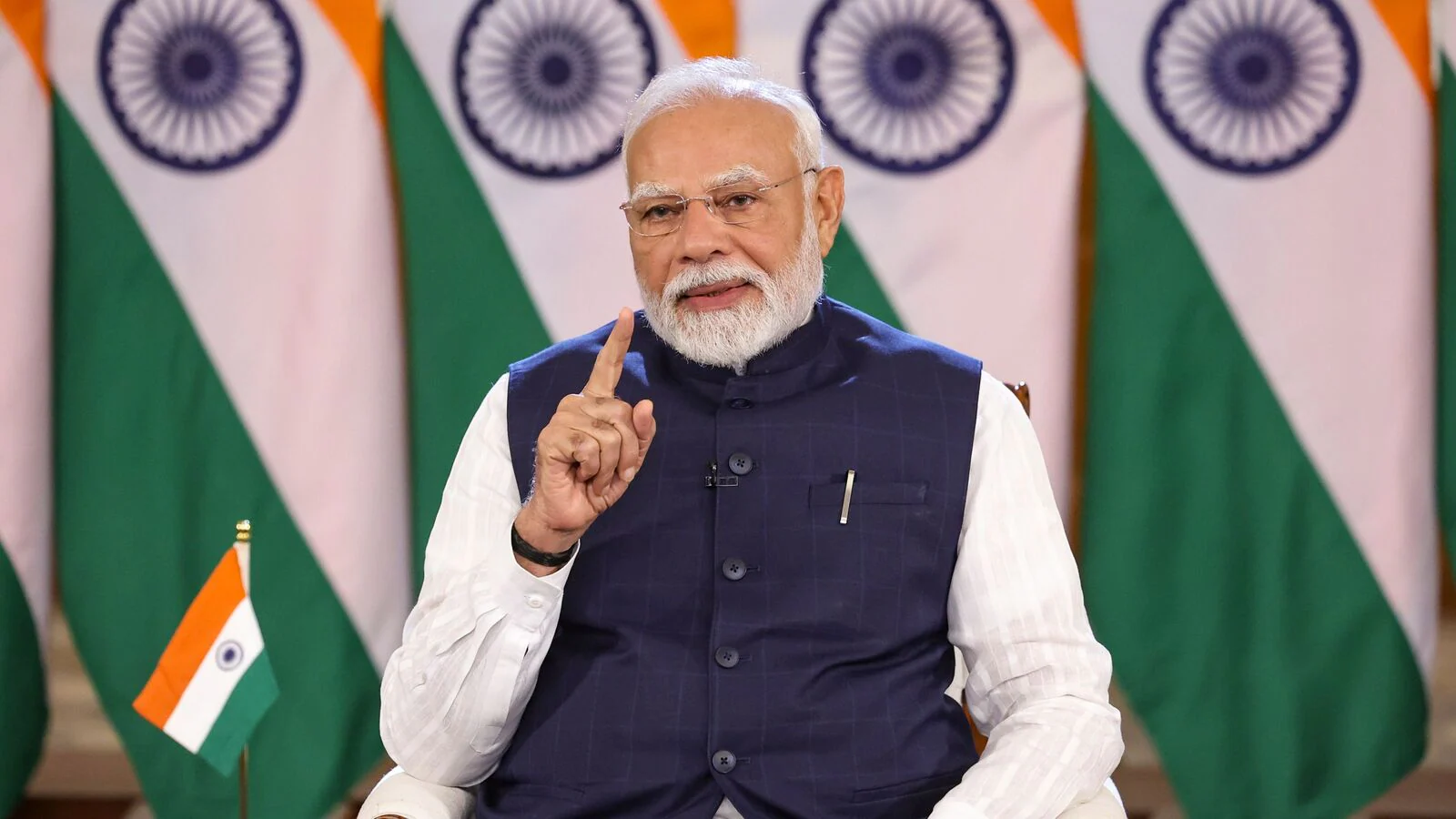
Narendra Modi says Amarnath Yatra to start on 3 July, hails India’s social sector schemes
How did your country report this? Share your view in the comments.
Diverging Reports Breakdown
Narendra Modi says Amarnath Yatra to start on 3 July, hails India’s social sector schemes
The Amarnath Yatra, the annual Hindu pilgrimage in the Anantnag district of Jammu and Kashmir, will begin on 3 July. Prime Minister Narendra Modi also hailed India’s various social security schemes, which together covered 950 million people in 2025, compared to about 250 million a decade ago. Modi said that the people of Vietnam had sent messages of gratitude to India for taking the relics of Lord Buddha found in Andhra Pradesh to the southeast Asian country. The prime minister also urged citizens to reduce the consumption of oil in food to reduce obesity in the country. He said the Eri Silk, a unique sort of cruelty-free silk produced in Meghalaya, has received a geographical identification tag a few days ago. The president of Vietnam, deputy prime minister, and senior ministers visited one of the nine locations where the Buddha statues were kept, and around 15% of Vietnam’s total population had visited these sites, he said. He also appreciated local efforts in Gujarat and Maharashtra regarding conservation of the environment.
Devotees of Lord Shiva travel to the Amarnath Temple shrine located near Pahalgam, where Pakistan-sponsored terrorists massacred 26 tourists on 22 April, prompting India to launch Operation Sindoor—air strikes to destroy terror infrastructure in the Islamic nation.
In his monthly radio address ‘Mann Ki Baat’, Modi extended his best wishes to those who were going on pilgrimages such as the Amarnath Yatra and the Kailash Mansarovar Yatra. “I also commend those who are engaged in making these Yatras successful and safe with a spirit of service,” he said.
He also hailed India’s various social security schemes, which together covered 950 million people in 2025, compared to about 250 million a decade ago. Citing a report by the International Labour Organization (ILO), a UN agency, Modi said that 64% of India’s population was “definitely availing of some social protection benefit or the other”.
India’s social sector welfare and protection schemes include the public distribution system which provides subsidized foodgrains to poor citizens. Under the PM Awaas Yojana (PMAY), the government provides ₹1.2 lakh in plain areas and ₹1.3 lakh in hilly areas for assistance in housing.
Similarly, the Ayushman Bharat-Pradhan Mantri Jan Arogya Yojana (AB-PMJAY) provides health coverage of ₹5 lakh per year for secondary and tertiary care hospitalization free of cost. The Antyodaya Anna Yojana (AAY) is an essential social welfare initiative aimed at ensuring food security for the most vulnerable segments of society. The Pradhan Mantri Garib Kalyan Anna Yojana (PMGKAY) was launched with the specific purpose of ameliorating the hardships faced by the poor and needy due to economic disruptions caused by the Covid-19 pandemic in the country in 2020. The free-foodgrain scheme has been extended till the end of 2028, and benefits more than 800 million Indians.
He also said that the people of Vietnam had sent messages of gratitude to India for taking the relics of Lord Buddha found in Andhra Pradesh to the southeast Asian country.
The president of Vietnam, deputy prime minister, and senior ministers visited one of the nine locations where the Buddha statues were kept, and around 15% of Vietnam’s total population had visited these sites, said Modi.
“Originally these sacred relics of Bhagwan Buddha were discovered at Nagarjunakonda of Palnadu district in Andhra Pradesh. This place has a deep connection with Buddhism. It is said that once upon a time, people from far-off places including Sri Lanka and China used to come to this place,” he said, adding that earlier, these relics were also taken to Thailand and Mongolia.
The prime minister also urged citizens to reduce the consumption of oil in food to reduce obesity in the country.
Modi said the Eri Silk, a unique sort of cruelty-free silk produced in Meghalaya, has received a geographical identification tag a few days ago. “Nowadays, the demand for such products is rising rapidly in the world, which do not involve violence and do not have any ill-effect on nature, hence, Eri Silk of Meghalaya is a perfect product for the global market,” he said.
He also noted the work done by several self-help groups across the country.
Modi, who will embark on a 5-nation tour on 2 July to attend the Brics summit in Brazil, also appreciated local efforts in Gujarat and Maharashtra regarding conservation of the environment. Ahmedabad’s municipal commission has started afforestation efforts and set a target to plant a million trees. “A special aspect about this campaign is ‘Sindoor Van’. This forest is dedicated to the bravehearts of Operation Sindoor. Sindoor saplings are being planted in the memory of those brave people who have sacrificed everything for the country,” he said.
He also said the efforts to become to a carbon-neutral village by the Patoda Gram Panchayat in Chhatrapati Sambhaji Nagar district in Maharashtra were noteworthy. The village practices collecting garbage from each house, treating dirty water before it reaches the river, and performing last rites with cow dung cakes and planting a tree in the name of every deceased person using the ash, according to Modi.
In Hindu religious practices, last-rite rituals involve the deceased person’s body being burned on a wooden pyre.
